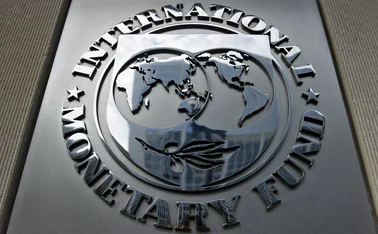
Efta court's Icesave ruling leaves European deposit insurance in tatters

The surprising judgment by the European Free Trade Association (Efta) court in dismissing an application by Efta's own Surveillance Authority related to cross-border deposit insurance in favour of Iceland represents a Pyrrhic victory for Iceland and other small member states of the European Economic Area (EEA).
The Efta court on January 28 dismissed the surveillance authority's case that Iceland failed to comply with an obligation under EEA directives to make timely payment of the minimum deposit guarantee to British and Dutch Landsbanki depositors as well as that it discriminated against foreign investors since domestic deposits were transferred into a new state-owned bank and were thereby fully protected.
Iceland's deposit insurance scheme was largely ‘ex post funded' in line with other European countries. The idea of ex post funding is that, apart from a small contingency fund of the order of a few per cent of the total value of the deposits in the banking system covered, in the event of a significant bank failure the deposit insurance scheme borrows the money to cover the insurance payments and then recovers this from increased premiums paid by the surviving banks. While such an arrangement might seem unfair to the surviving financial institutions, banks generally prefer such a scheme to holding a substantial proportion of their assets in a standing insurance fund.
Before the Landsbanki failure in 2008 it had been assumed that, in the event of a major bank failure in the EEA, the state concerned would support its country's deposit insurance scheme with a loan if necessary, and in the European single market, bank regulators in a country where a bank from another member state wanted to open a branch were obliged to accept such a standard deposit insurance scheme as adequate.
The decision of the Efta court throws the participation of small countries in the single banking market into doubt. This is because a key reason given for the judgment was that the 94/19/EC directive on deposit guarantee schemes could not be extended to "a systemic crisis of the magnitude experienced in Iceland".
Clearly, in a small country with a few banks, the failure of any significant bank is likely to overwhelm the resources of an ex post funded deposit insurance fund and place a crippling burden on the remaining banks, in addition to any stress they may suffer from contagion – in such a country, most bank failures will amount to a systemic bank crisis.
This means either that small countries must establish ex ante funded deposit insurance schemes, which will put their banks at a competitive disadvantage, or that their banks will no longer be acceptable in the single market.
Finally, some of the reasoning of the Efta court, comprising three judges drawn from Liechtenstein, Iceland and Norway, seems so bizarre that there must be doubt about the acceptability of the court to EEA member states in future.
In dismissing the contention that Iceland had discriminated in favour of domestic investors, the court argued that, because this transfer had been made before the Icelandic bank regulators had formally declared Landsbanki deposits unavailable on October 27, 2008, the domestic depositors had never been in a position to need deposit insurance. This was despite the fact that the court noted that Landsbanki collapsed on October 7 and the decision to transfer domestic deposits was made on the October 9, under an ‘Emergency Act' passed by the Icelandic parliament on the October 6, by which time the failure of Landsbanki was inevitable, meaning that the deposit transfers were plainly ex post facto.
Tim Young is a former Bank of England official and university lecturer in finance and economics.
Only users who have a paid subscription or are part of a corporate subscription are able to print or copy content.
To access these options, along with all other subscription benefits, please contact info@centralbanking.com or view our subscription options here: http://subscriptions.centralbanking.com/subscribe
You are currently unable to print this content. Please contact info@centralbanking.com to find out more.
You are currently unable to copy this content. Please contact info@centralbanking.com to find out more.
Copyright Infopro Digital Limited. All rights reserved.
You may share this content using our article tools. Printing this content is for the sole use of the Authorised User (named subscriber), as outlined in our terms and conditions - https://www.infopro-insight.com/terms-conditions/insight-subscriptions/
If you would like to purchase additional rights please email info@centralbanking.com
Copyright Infopro Digital Limited. All rights reserved.
You may share this content using our article tools. Copying this content is for the sole use of the Authorised User (named subscriber), as outlined in our terms and conditions - https://www.infopro-insight.com/terms-conditions/insight-subscriptions/
If you would like to purchase additional rights please email info@centralbanking.com








